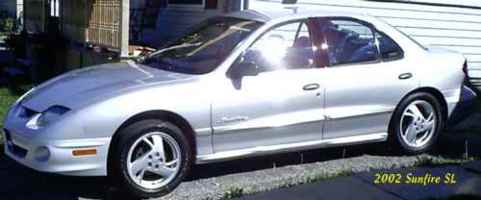I'm curious because I think that's what this noise I'm getting is. Also, what can be done to fix it? Should the seals be replaced? Is it a constant noise or is it like an engine knock that happens ussualy once then not again for a little bit? Is it like a fast rattling noise?
Any help would be great. I'm getting real tired of all the noises my cavi's making and the shop always wants to charge me a $65 diagnostic charge. I think that's just their way of joy riding in my car for half an hour then telling me that it's making noises. It never turns up anything that I didn't walready know.
Longevity is not acheived through mediocrity
Seals on the valves will certainly not make noise - when they go your oil consumption will likely skyrocket, and you'll make nice little blue clouds out the back whenever you take off.
If you're getting a steady noise, it's likely not the valves themselves, but a clearance issue with one or more of the rocker arms. I haven't personally taken my valve cover off my car to see what the setup is like, but some engines have adjustments built into the rocker arms to reduce valve lash. This is typically only on engines with solid (mechanical) lifters though - as far as I know these 2200s have hydraulic lifters. My engine has had a noisy valvetrain since new, with most of the noise audible between 1500 and 2500 RPM. The noise doesn't change with engine load, and tends to be most noticeable once the engine is warmed up. I've now got 113,000km on it, and the noise hasn't changed much since new, so I haven't concerned myself too much with it. You actually hear it more in the car than under the hood, so it's even hard to pinpoint outside of the car.
If you're getting a fast rattling noise on occasion, I would check your EGR operation (if you have one). Your knock sensor should prevent any serious knocking from occurring, but only to an extent. Poor gasoline can cause this too (insufficient octane). This seems to be more of a problem in the winter as they re-formulate the gas for starting in the cold (greater volatility, I believe). You can try moving up a level of octane to see if this changes anything. Carbon deposits can cause this too (from increasing effective compression ratio), but from your description of your car, I'm betting you don't drive in such a way as to develop many deposits.
Also, I noticed that you also have to go through Ontartio's wonderful "Drive Clean" program. I was just curious as to what kind of results your car got. Mine's a 2002, but the readings were rediculously low - but I know they put the probe in the exhaust - I watched them. The driving test results were: HC ppm: 0, CO%: 0.00, NO ppm: 9. Curb idle test: HC ppm: 0, CO%: 0.00. The guys there seemed impressed, and told me that "I couldn't kill myself in a garage with THAT car". If the reading were in fact true, why do we need hybrid cars to reduce emissions? I know they're better on gas, but at nearly double the price of my car (or more), you'd have to drive literally hundreds of thousands of kilometers problem-free to make up the difference!
Sorry for getting off topic - just let us know how the noise diognostic goes.

http://registry.gmenthusiast.com/images/2002sunfiresl/Modified%20sunfire2.jpg

